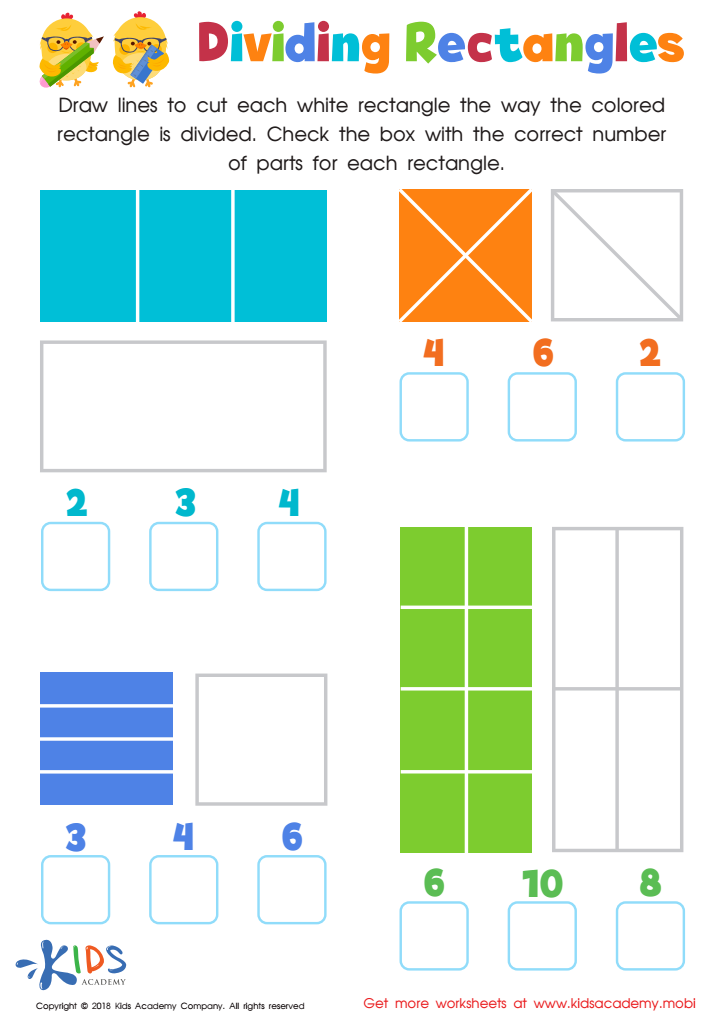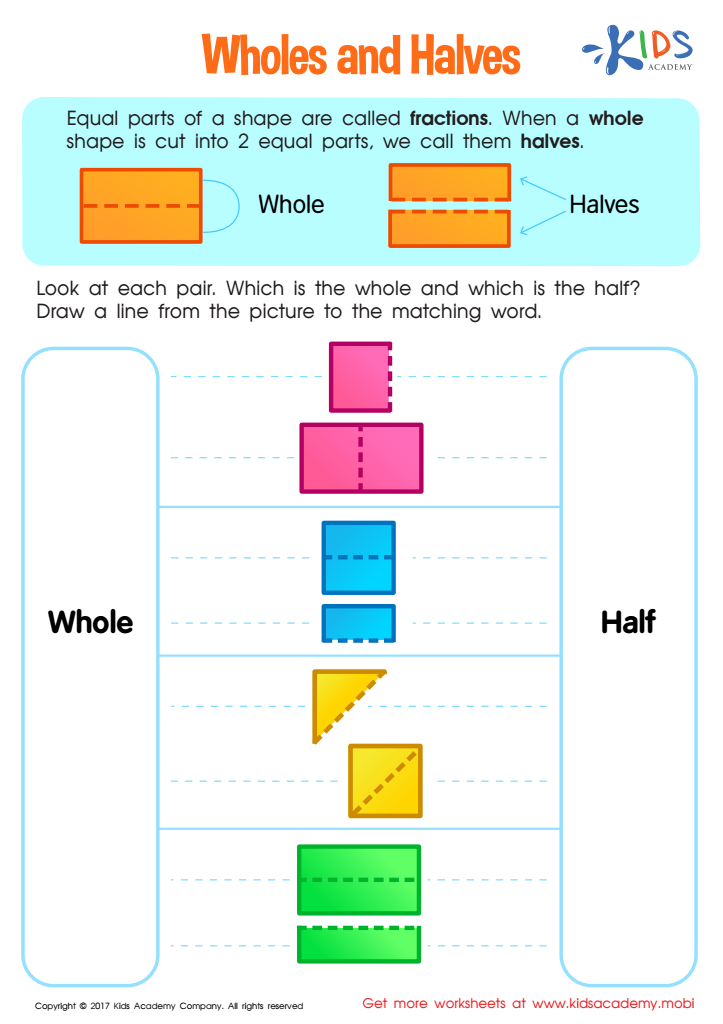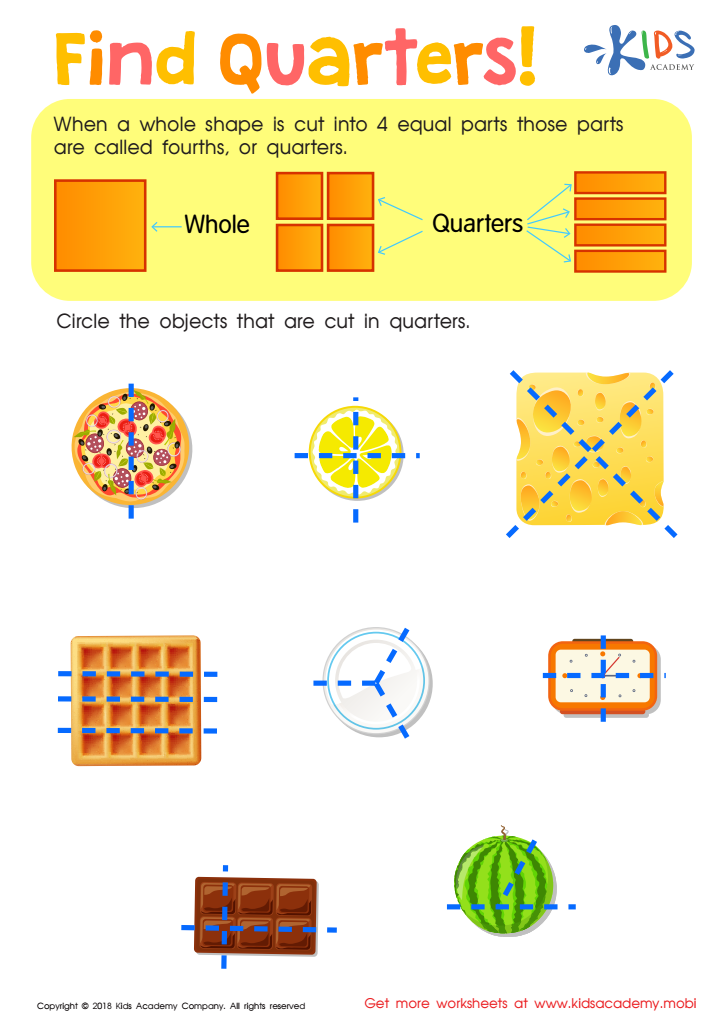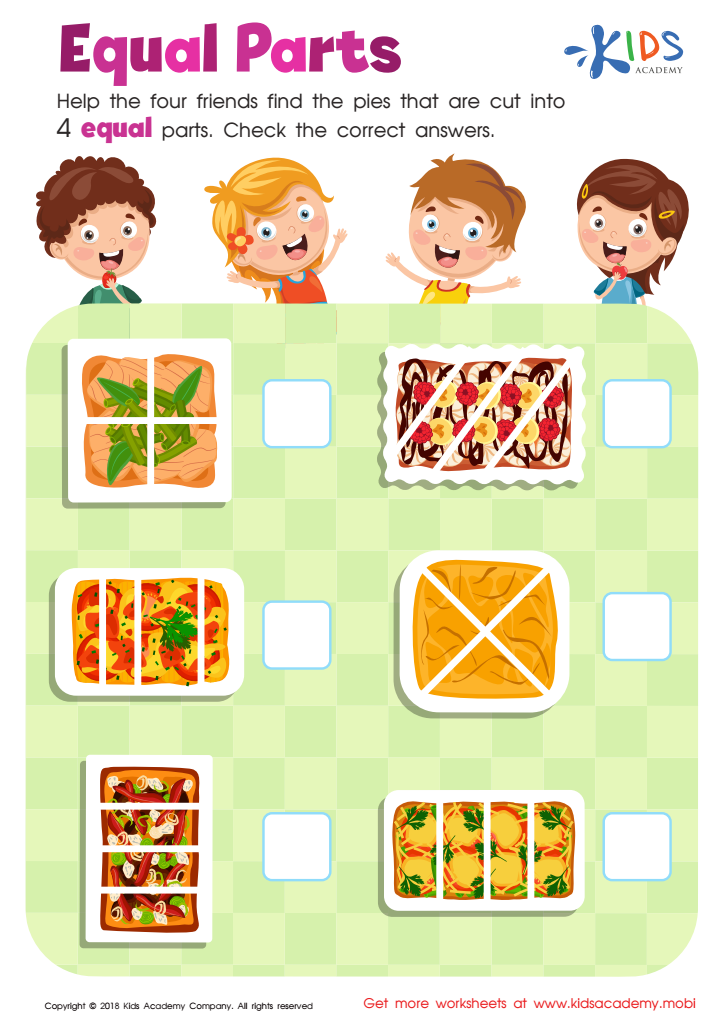Understanding fractions Normal Geometry Worksheets for Ages 4-7
4 filtered results
-
From - To
Discover our "Understanding Fractions Normal Geometry Worksheets" designed for young learners aged 4-7. These engaging and interactive worksheets provide a fun way for kids to grasp the concept of fractions through colorful visuals and practical activities. Tailored to support early math skills, these resources promote critical thinking and problem-solving as children learn to identify, compare, and manipulate fractions in everyday contexts. With easy-to-follow instructions and a variety of exercises, educators and parents can guide children in mastering essential math foundations. Perfect for classroom use or home learning, these worksheets ensure that learning about fractions is an enjoyable experience!


Dividing Rectangles Worksheet


Wholes and Halves Worksheet


Find Quarters Worksheet


Equal Parts: Food Worksheet
Understanding fractions and basic geometry is fundamental for children ages 4-7, as these concepts lay the groundwork for critical thinking and problem-solving skills. For parents and teachers, fostering a strong grasp of these subjects is essential for several reasons.
First, mastering fractions helps children develop numerical fluency and enhances their ability to understand relationships between numbers, which is key for later math skills. It encourages them to appreciate parts of a whole, a concept that aids in everyday activities like sharing items or measuring ingredients in cooking.
On the other hand, learning basic geometry fosters spatial awareness, which is essential for cognitive development. Children can learn to identify shapes, understand symmetry and recognize patterns, which are all integral to their overall number sense.
Moreover, early exposure to these concepts encourages curiosity and a positive attitude towards math, which can reduce anxiety in later years and build confidence.
By prioritizing these foundational skills, parents and teachers not only enhance children’s academic capabilities but also prepare them for the complexities of the world around them. Understanding fractions and geometry fosters a holistic approach to education, ensuring children develop into well-rounded learners.
 Assign to My Students
Assign to My Students















